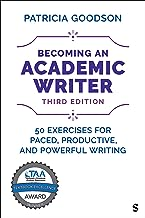Published academic book author and futurist Bryan Alexander will present the 2026 Michael Sullivan Lecture Keynote, “How the AI Revolution is Impacting the Future of Textbook & Academic Publishing,” at the Textbook & Academic Authors Association’s 2026 TAA Institute for Textbook and Academic Authors on Friday, June 12. This interactive and engaging talk will explore emerging and potential AI uses in the textbook world, including:
- Publishers using it to create or assist in making manuscript reviews, indexes, art, and marketing
- Developing bots for reader interactions with materials
- Authors rapidly creating textbooks with AI
- Questions around content licensing, AI and copyright
- Sustained academic and popular opposition to general AI
He will conclude with several scenarios for possible textbook futures. Learn more or register






